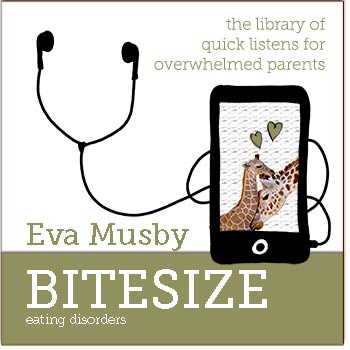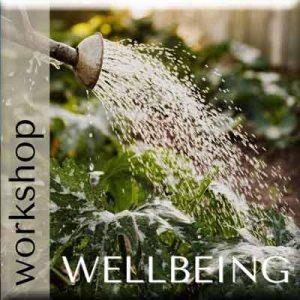Self-harm and suicidal thoughts are not uncommon with an eating disorder
Sadly, suicidal thoughts, as well as self-harm, are not uncommon among children with an eating disorder. The eating disorder and malnutrition may cause or exacerbate self-injury. Self-injury seems to serve (short-term) a variety of needs for different people – for example releasing stress or communicating emotional pain.
Self-injury? Suicidal talk? Get your clinicians to advise
Our children may also talk of a wish to be dead, of how we’d be better off without them. Often, this is a heartfelt, momentary expression of distress rather than an intention to end their life. All the same, when it comes to self-harm and suicidality, ask your clinicians for risk-assessment and guidance.
For most youngsters, the risk diminishes overall as they get re-nourished. But at the start of refeeding, it’s common to see a few days or weeks of increased distress. Think of a J-shaped curve on a graph showing mood over time.
Don’t let suicidality and self-harm be taboo topics. If your clinicians are not giving you the help you need (insist that they do), here are excellent resources that guide you to have compassionate conversations and to create a safety plan.
Nurturing hope
If you've come to this page I can well imagine you are very worried. So I want to share that over the years I've followed parents whose child was at a particularly high risk. These youngsters who required 24/7 supervision and went through so much distress, are now living happy fulfilled lives.
Some fantastic resources on self-harm and suicidality
There’s fantastic practical guidance on this FEAST webinar with Siegfried and Nichols:
Also on making a safety plan: stayingsafe.net and another one at mysafetyplan.org
Pooky Knightsmith on YouTube, on how to use stayingsafe
Another great YouTube from Pooky Knightsmith: how to support in a moment of suicidal crisis
Not just for suicide, this YouTube: Responding to Hopelessness – What to Say When Nothing Seems to Work with Adele Lafrance.
For self-harm, this book seems evidence-based but may need adapting for eating disorders: ‘Healing self-injury’ by Whitlock and Lloyd-Richardson.
Also parents’ tips on aroundthedinnertable.org/post/dealing-with-self-harm-12043985
Recognising signs and how to support: ‘Suicide Rates Are Higher in Eating Disorder Populations — Here’s What You Need to Know’ is a helpful article by Equip
If you are looking for statistics, I've compiled some here. And some pointers to crisis helplines here.
More help
I write a little bit more on this in Chapter 6 of my book
Lots of calming / anxiety-reduction tools in my Bitesize audio collection
Help to connect and communicate with your child: lots of help in all my resources, including a workshop:
-
%27%20fill-opacity%3D%27.5%27%3E%3Cellipse%20fill%3D%22%23f7d0b6%22%20fill-opacity%3D%22.5%22%20rx%3D%221%22%20ry%3D%221%22%20transform%3D%22rotate(138.6%2034.3%20182.4)%20scale(119.26546%20138.54563)%22%2F%3E%3Cellipse%20fill%3D%22%23162b36%22%20fill-opacity%3D%22.5%22%20rx%3D%221%22%20ry%3D%221%22%20transform%3D%22matrix(-3.6903%20-51.82057%20298.07328%20-21.22665%20194.7%2098.8)%22%2F%3E%3Cellipse%20fill%3D%22%23007ab2%22%20fill-opacity%3D%22.5%22%20rx%3D%221%22%20ry%3D%221%22%20transform%3D%22matrix(43.81505%205.84618%20-39.52193%20296.20309%2022%20107.3)%22%2F%3E%3Cellipse%20fill%3D%22%23ce8143%22%20fill-opacity%3D%22.5%22%20rx%3D%221%22%20ry%3D%221%22%20transform%3D%22rotate(-150.3%20112.3%2069.3)%20scale(84.44617%2041.41259)%22%2F%3E%3C%2Fg%3E%3C%2Fsvg%3E)
Essentials: how to succeed with meals and other priorities
€66.99 Book Now! -
%27%20fill-opacity%3D%27.5%27%3E%3Cellipse%20fill%3D%22%23aad5ee%22%20fill-opacity%3D%22.5%22%20rx%3D%221%22%20ry%3D%221%22%20transform%3D%22matrix(157.38962%20132.53437%20-56.73966%2067.38051%20189.8%2052)%22%2F%3E%3Cellipse%20fill%3D%22%23d7853d%22%20fill-opacity%3D%22.5%22%20rx%3D%221%22%20ry%3D%221%22%20transform%3D%22rotate(31.5%20-373.6%20296.4)%20scale(298.82813%20109.8453)%22%2F%3E%3Cellipse%20fill%3D%22%2344ac90%22%20fill-opacity%3D%22.5%22%20rx%3D%221%22%20ry%3D%221%22%20transform%3D%22matrix(-17.8881%2034.40046%20-108.96557%20-56.6617%20273.8%2011.3)%22%2F%3E%3Cpath%20fill%3D%22%23cca701%22%20fill-opacity%3D%22.5%22%20d%3D%22M-57.8%20295.9l6.2-44.1%20197.3%2027.7-6.2%2044.1z%22%2F%3E%3C%2Fg%3E%3C%2Fsvg%3E)
Extinguish fears: how to bring back flexibility
€32.99 Book Now! -

Freedom: how to bring back independence
€32.99 Book Now! -
%22%20transform%3D%22translate(.6%20.6)%20scale(1.17188)%22%20fill-opacity%3D%22.5%22%3E%3Cellipse%20fill%3D%22%23c7d5d6%22%20rx%3D%221%22%20ry%3D%221%22%20transform%3D%22matrix(-43.87207%20-11.01446%2062.09296%20-247.32461%2026%2044.7)%22%2F%3E%3Cellipse%20fill%3D%22%2360072b%22%20cx%3D%22168%22%20cy%3D%22251%22%20rx%3D%22128%22%20ry%3D%2247%22%2F%3E%3Cellipse%20fill%3D%22%23be2500%22%20rx%3D%221%22%20ry%3D%221%22%20transform%3D%22rotate(-115%2086.8%20-11.7)%20scale(30.6411%2068.7123)%22%2F%3E%3Cellipse%20fill%3D%22%23732545%22%20rx%3D%221%22%20ry%3D%221%22%20transform%3D%22matrix(-38.70059%2017.06032%20-29.75301%20-67.49339%20248.2%20157)%22%2F%3E%3C%2Fg%3E%3C%2Fsvg%3E)
Communication skills to support your child and be more effective
€32.99 Book Now! -
%22%20transform%3D%22translate(.6%20.6)%20scale(1.17188)%22%20fill-opacity%3D%22.5%22%3E%3Cpath%20fill%3D%22%233a3c30%22%20d%3D%22M58%20104l211%20167H9z%22%2F%3E%3Cellipse%20fill%3D%22%23adb582%22%20cx%3D%2280%22%20cy%3D%221%22%20rx%3D%22117%22%20ry%3D%22117%22%2F%3E%3Cellipse%20fill%3D%22%231a162c%22%20rx%3D%221%22%20ry%3D%221%22%20transform%3D%22matrix(36.31757%2040.76194%20-27.85407%2024.81707%20255%20112)%22%2F%3E%3Cellipse%20fill%3D%22%23a9a7b3%22%20rx%3D%221%22%20ry%3D%221%22%20transform%3D%22matrix(-54.67352%20-46.36652%2019.2137%20-22.65602%20140.8%2093)%22%2F%3E%3C%2Fg%3E%3C%2Fsvg%3E)
Grow stronger – Tools for your own wellbeing
€32.99 Book Now!
My page on autism may be relevant to you: sometimes these are the kids who are the most misunderstood, have greater levels of anxiety, and need parents and clinicians to be extra-well informed.
And a note that might be relevant to you: Bev Mattocks, author of the book Please Eat, learned from her son Ben that when he used to beat his head against the wall and shout, he was trying to fight his sense of an anorexic demon — it wasn't the demon driving the behaviour.










LEAVE A COMMENT (parents, use a nickname)